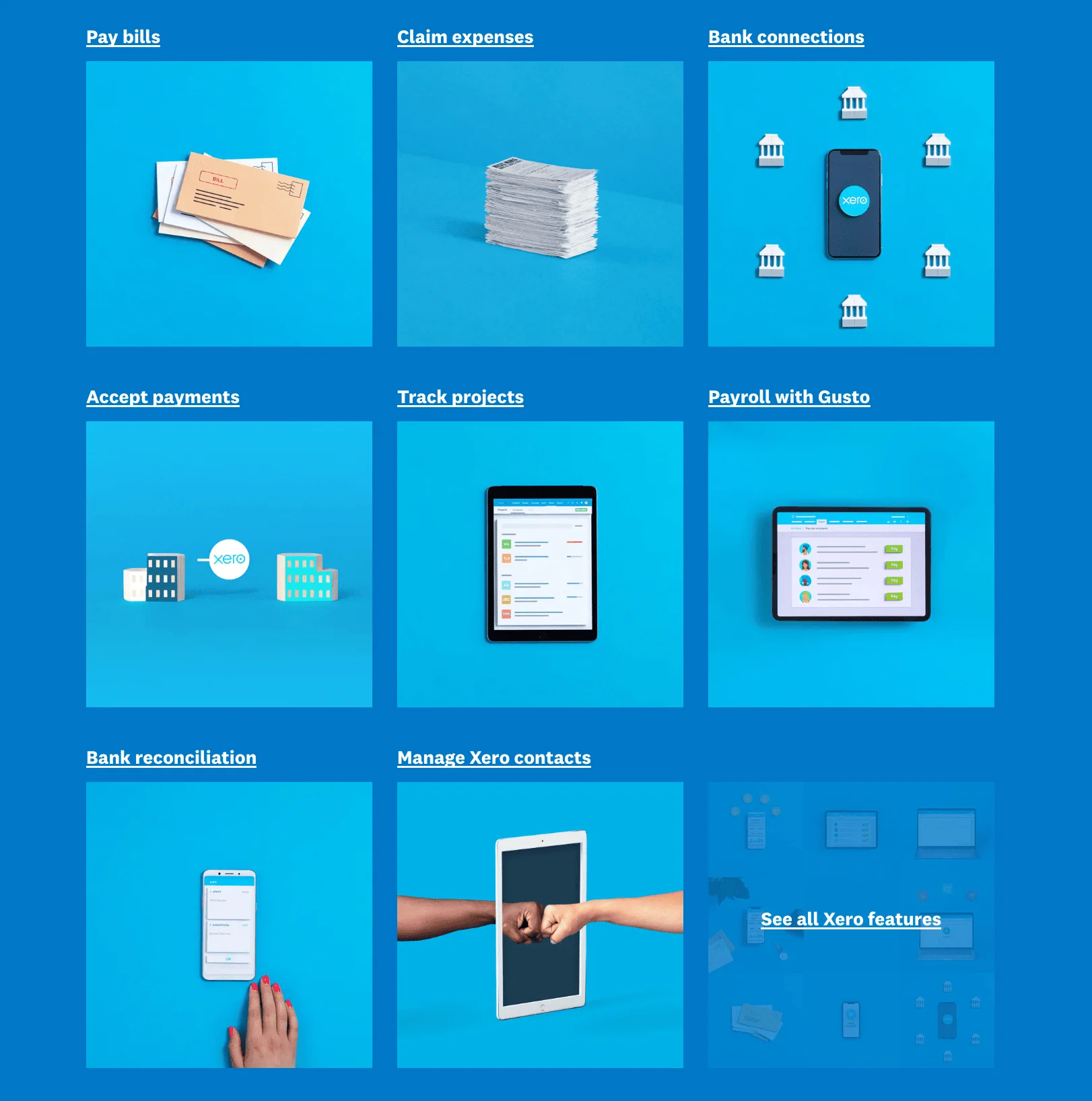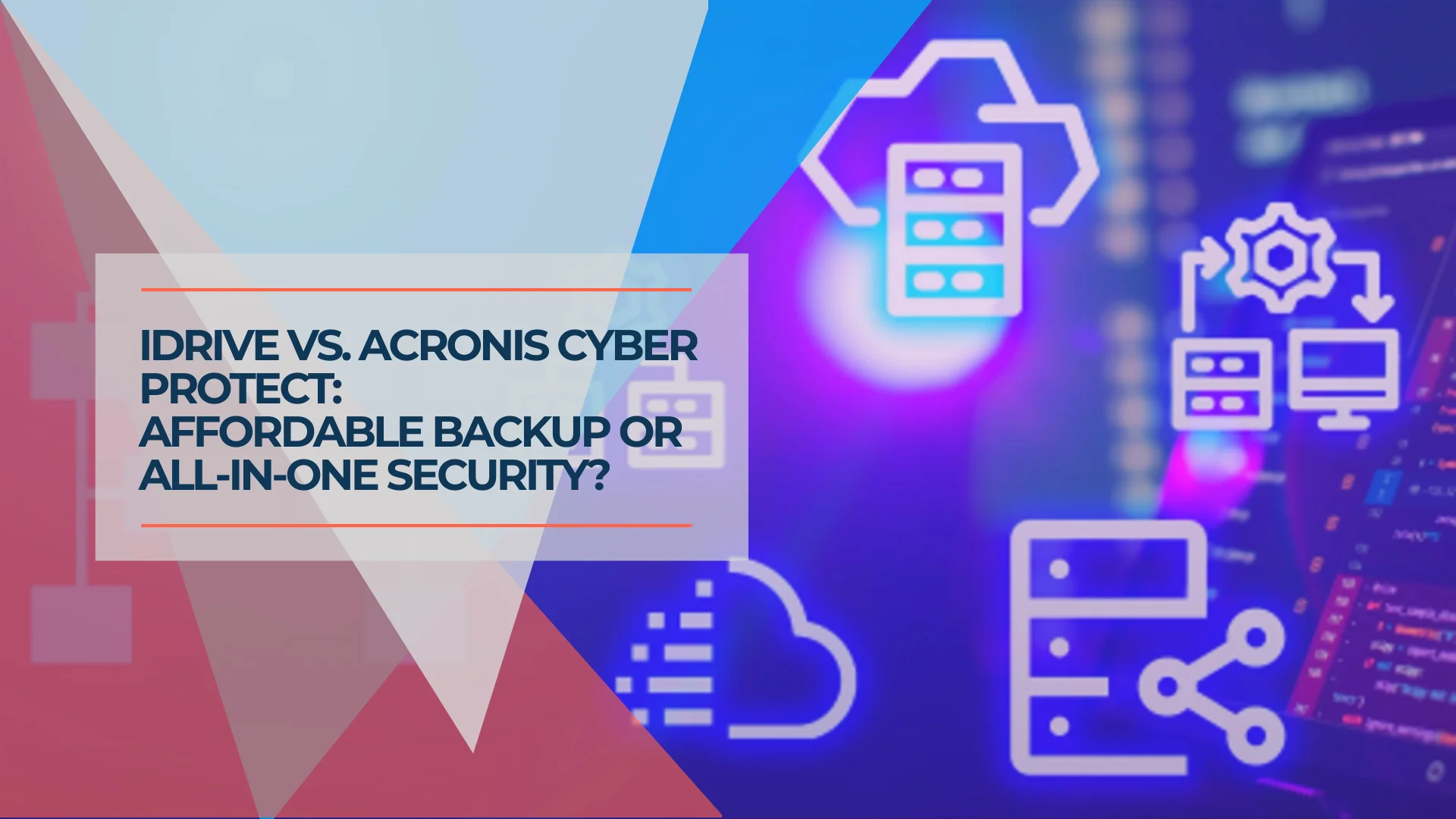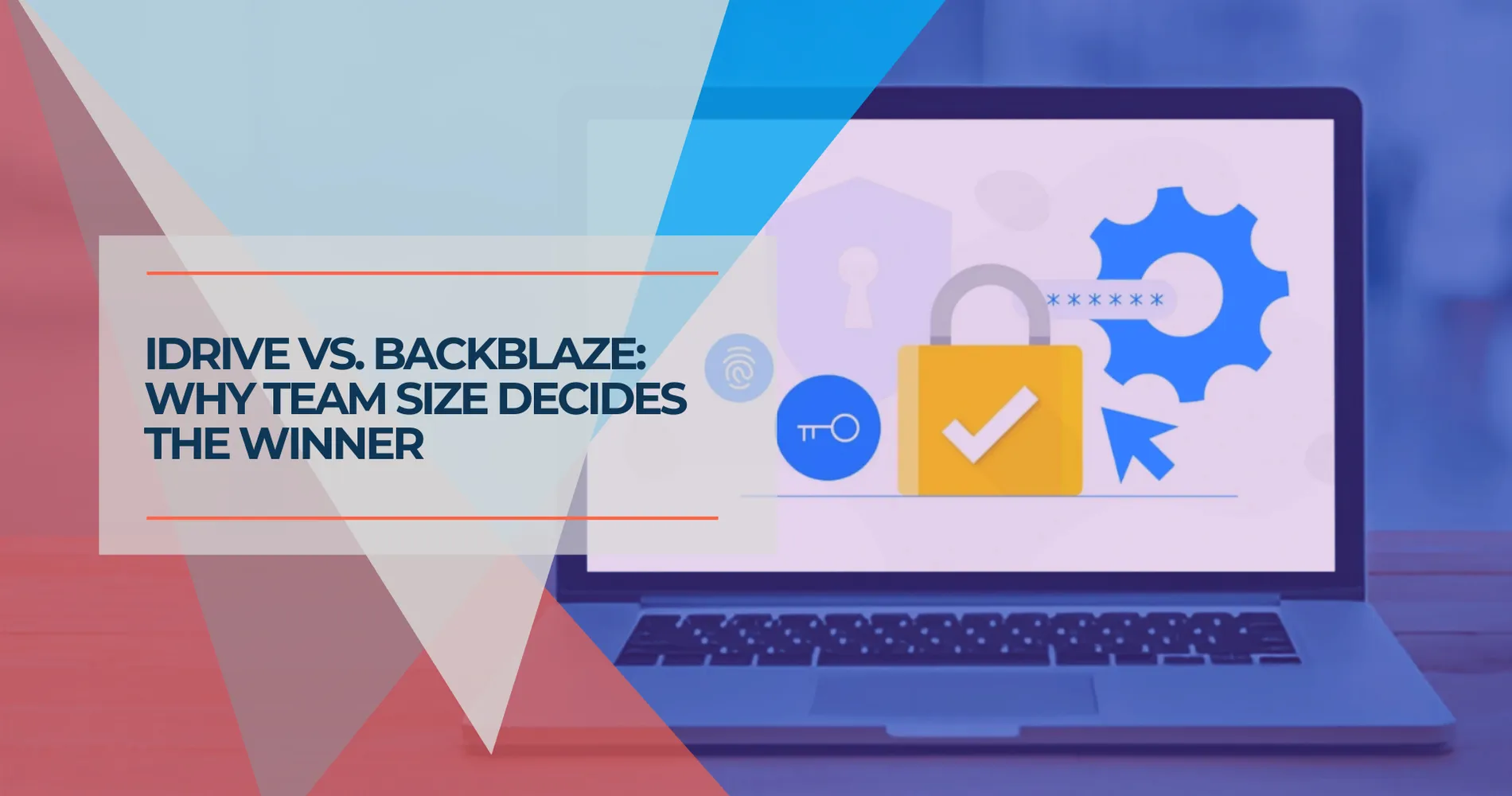Xero Accounting Review 2026: Best for Small Businesses That Need Unlimited Users (Skip If You Need Advanced Inventory)
Xero accounting review for 2026: Best for teams needing unlimited users and international invoicing. Compare Xero vs QuickBooks vs Wave pricing and features. Skip Xero if you need advanced inventory or manufacturing.

Anyone in the small business world will tell you that Xero is a big name in accounting software. It's known for being easy to use, packing in great features, and scaling alongside growing businesses. But with technology always evolving, what does Xero look like in 2026? Does it still hold up for businesses seeking a modern accounting solution?
Key Finding
Xero excels for teams that need unlimited users—a feature that costs extra with QuickBooks. The Growing plan ($55/month) includes unlimited users, making it cost-effective for businesses with 3+ team members. Xero includes basic inventory tracking (up to 4,000 items with auto COGS), plus Xero Inventory Plus for enhanced needs. Multi-currency support requires the Established plan ($90/month).
New for 2025/2026: Free 1099 e-filing included in all plans, and Just Ask Xero (JAX) AI assistant for natural language commands.
Quick Comparison: Xero vs QuickBooks vs Wave (December 2025)
| Feature | Xero Growing | QuickBooks Simple Start | Wave Pro |
|---|---|---|---|
| Monthly Cost | $55 | $38 | $19 |
| Best For | Teams & international | Advanced inventory businesses | Freelancers/micro-businesses |
| Unlimited Users | ✓ | ✗ (1 user; +$10/user) | ✓ (Pro only) |
| Unlimited Invoicing | ✓ | ✓ | ✓ |
| Bank Auto-Import | ✓ | ✓ | ✓ |
| Inventory Tracking | ✓ Basic (4,000 items) | ✓ Advanced | ✗ |
| Multi-Currency | ✗ (Established only) | ✗ | ✓ (limited) |
| Time Tracking | ✗ (add-on required) | ✓ | ✗ |
| Project Tracking | ✗ (add-on required) | ✓ | ✗ |
| 1099 E-Filing | ✓ Included free | ✓ | ✗ |
| Payroll | Via Gusto (+$49/mo) | ✓ Built-in add-on | ✓ Add-on |
Quick Decision Guide
Choose Xero if: You need unlimited users, work with international clients, want a clean modern interface, or plan to scale past $100K revenue.
Skip Xero if: You need advanced inventory (multi-warehouse, serial numbers, manufacturing), need built-in time tracking, prefer phone support, or want the lowest possible cost.
In this review, we'll look at Xero's current strengths, what's new, and whether it's the right choice for your business needs.
Affiliate Disclosure: This article contains affiliate links. If you make a purchase through these links, we may earn a small commission at no extra cost to you.
Xero Accounting at a Glance: What's New?
Xero has always aimed to simplify accounting, and in 2025/2026, it continues to focus on refinement and intelligent automation. Here are some of the key areas where Xero has gotten even better:
- AI-Powered Automation: Xero has significantly boosted its use of artificial intelligence (AI). This means more accurate receipt scanning, faster transaction categorization, and smarter suggestions during bank reconciliation.
- Enhanced Reports: Expect dashboards to be more interactive, with the ability to drill down into specific figures and customize visualizations for the insights that matter most to you.
- Focus on Tax Time: If tax prep gives you headaches, Xero might have some relief. Xero has expanded tax features, streamlining calculations and reporting processes for businesses dealing in multiple currencies.
- Mobile + Cloud Improvements: Xero's mobile app is getting polished. Expect smoother syncing, improved offline access, and perhaps new features aimed at businesses on the go.
How Xero Stands Out in 2026
While there are some exciting updates, the core reasons to choose Xero remain strong:
- Ease of Use: User-friendly design has always been a Xero hallmark, making it a great option for non-professional accountants.
- Scalability: Whether you are a solopreneur or a growing enterprise, Xero offers plans and features to match your growth trajectory.
- The Power of the Cloud: Access your financials from anywhere, collaborate with your accountant in real-time, and forget about software updates or backups – that's all handled for you.
What Our Clients Are Saying About Xero
We've helped many clients implement and utilize Xero. Here are some of their key experiences and feedback:
Positive Aspects
- Ease of Use: Clients find Xero's interface user-friendly, especially with its focus on accounting functionality and a clear audit trail.
- Customization: The ability to customize the Xero dashboard is appreciated as it puts the most important information at their fingertips.
- Approval System: The built-in approval workflow streamlines the processes between businesses and their accountants.
- Fixed Asset Register: For businesses managing fixed assets, this is a valuable feature that QuickBooks doesn't offer.
- Analytical Approach: Clients appreciate the analytical tools and reports Xero provides for better business insights.
- Payment Integrations: The flexibility to integrate various payment methods makes transactions easier for clients.
Challenges
- Learning Curve: Some clients without accounting experience might need more time to familiarize themselves with Xero's terminology.
- Cost: Xero can be a bit more expensive than alternatives.
- Limited Advanced Inventory: While Xero has basic inventory (up to 4,000 items), it lacks advanced features like multi-warehouse, serial numbers, or manufacturing workflows.
- Interface Design: Some find the design less visually engaging than its competitors.
Overall Impression
Our clients see Xero as a reliable option that effectively manages their accounting needs. However, some feel it might not be the most intuitive option for those entirely new to accounting or seeking a visually-driven experience.

In-Depth Look at Xero Features
This section will focus on two key areas that impact most businesses.
Expense Tracking and Bill Pay: Simplified
- Smart Receipt Capture: Xero includes Hubdoc free with all business plans. Snap photos of receipts and let Xero's AI extract the important details, saving you time and minimizing data entry errors.
- Bill Management: Keep track of due dates, attach bills directly in Xero, and see what's paid and outstanding with a glance.
- Seamless Payments: Xero integrates with popular payment providers like Stripe, allowing you to accept online payments through your invoices.
Comprehensive Financial Reporting and Data Analytics
- The Dashboard: Your Command Center: Get a real-time snapshot of your business finances, an essential feature of Xero's online accounting platform. Track key performance indicators (KPIs) tailored to your industry.
- Customizable Reports: Go beyond basic profit and loss. Xero lets you get granular with reports on cash flow, tax summaries, budgets, and more.
- Actionable Insights: Xero's reporting tools aim to help you spot trends, identify areas for improvement, and make informed decisions.
Set up your Xero organisation
The Ease of Using Xero
Whether you're an accounting whizz or a beginner, Xero makes it easy to take control of your finances. Here's why:
User-Friendly Interface and Navigation
- Intuitive Design: Xero's dashboard and menus are laid out logically, making it a user-friendly accounting tool. Finding what you need doesn't feel like hunting through a complicated software suite.
- Helpful Terminology: Xero avoids overly technical accounting jargon, making it more approachable for non-accountants.
- Mobile App That's Actually Useful: Xero's mobile app isn't just a watered-down version of the web experience. You can snap receipts, reconcile accounts, and check important numbers on the go.
Setup and Implementation: Getting Started with Xero
- Guided Onboarding: Xero walks you through the initial setup, making sure your business info and chart of accounts are set up correctly.
- Import Your Data: Xero helps you easily transfer your existing financial records if you switch from another software.
- Support Resources: It offers a vast library of help articles, videos, and a supportive user community to answer any questions.
Xero's Pricing Plans: A Detailed Overview
Xero's pricing is transparent and based on a tiered subscription model. As of December 2025, they offer the following US plans:
- Early ($25/month): Entry-level plan for sole traders and new businesses. Includes invoicing (20/month limit), bill pay (5/month limit), bank reconciliation, and Hubdoc receipt capture. Now includes free 1099 e-filing.
- Growing ($55/month): Unlocks unlimited invoicing and bills, bulk reconciliation, basic inventory tracking (up to 4,000 items), and more robust expense management tools.
- Established ($90/month): Adds project tracking, multi-currency support (160+ currencies), expense claims, and analytics.
Pricing Comparison Table (US - December 2025)
| Features | Early | Growing | Established |
|---|---|---|---|
| Monthly Price | $25 | $55 | $90 |
| Users Included | Unlimited | Unlimited | Unlimited |
| Send invoices and quotes | 20/month | ✓ Unlimited | ✓ Unlimited |
| Enter bills | 5/month | ✓ Unlimited | ✓ Unlimited |
| Reconcile bank transactions | ✓ | ✓ | ✓ |
| Hubdoc receipt capture | ✓ (free) | ✓ (free) | ✓ (free) |
| Free 1099 E-Filing | ✓ | ✓ | ✓ |
| Short-term cash flow snapshot | ✓ | ✓ | ✓ |
| Bulk reconcile transactions | ✗ | ✓ | ✓ |
| Basic inventory (4,000 items) | ✗ | ✓ | ✓ |
| Use multiple currencies | ✗ | ✗ | ✓ |
| Track projects | ✗ | ✗ | ✓ (or add-on) |
| Claim expenses | ✗ | ✗ | ✓ (or add-on) |
| Analytics Plus | ✗ | ✗ | ✓ |
| Payroll (via Gusto) | +$49/mo | +$49/mo | +$49/mo |
Prices verified from xero.com/us/pricing-plans on December 21, 2025.
Beyond the Base Subscription
- Payroll: You can add payroll features to any Xero plan through its integration with Gusto, a popular payroll solution. Payroll costs are additional.
- Xero Analytics Plus: This add-on provides more in-depth reporting and forecasting tools for businesses that need data-heavy insights.
Factors to Consider When Choosing a Plan
- Number of Transactions: A higher-tier plan might be more suitable if you expect to send lots of invoices or have high volumes of bills.
- Specific Features: Do you need project tracking, multicurrency, or expense claims? Ensure the plan you choose offers the tools you need.
- Your Business Size and Growth Trajectory: Xero supports businesses at every stage with its cloud-based accounting software. Don't overpay for features you don't currently use. Xero makes it easy to upgrade later as needed.
Xero vs. Competitors: Detailed Head-to-Head Comparisons
Xero's main rivals, like QuickBooks Online and Wave Accounting, offer different strengths. Here's a detailed breakdown to help you choose.
Xero vs. QuickBooks: Which Is Right for Your Business?
| Consideration | Xero Growing ($55/mo) | QuickBooks Simple Start ($38/mo) |
|---|---|---|
| User pricing | Unlimited users included | 1 user; +$10/user adds up fast |
| Best for | Teams, international businesses | Advanced inventory, US-focused businesses |
| Inventory tracking | ✓ Basic (4,000 items, auto COGS) | ✓ Advanced (Plus plan and above) |
| Time tracking | ✗ Add-on required (Harvest, Toggl) | ✓ Built-in |
| Multi-currency | ✗ Established only ($90/mo) | ✗ Plus plan only (+$80/mo) |
| 1099 E-Filing | ✓ Included free | ✓ |
| Payroll | Via Gusto integration (+$49/mo) | ✓ Built-in add-on |
| Integrations | 800+ apps | 750+ apps |
| Learning curve | Easier for beginners | Steeper but more familiar to accountants |
| Accountant familiarity | Growing in US | Industry standard—most accountants know it |
| Mobile app rating | 4.4/5 | 4.7/5 |
Xero vs QuickBooks Recommendation
Choose Xero if you have 3+ team members (user cost savings), work internationally, or want a simpler interface.
Choose QuickBooks if you need advanced inventory management (multi-warehouse, manufacturing), built-in time tracking, or your accountant prefers it.
Xero vs. Wave: Premium Features vs Cost Savings
| Consideration | Xero Growing ($55/mo) | Wave Pro ($19/mo) |
|---|---|---|
| Target business size | $100K+ revenue, growing businesses | Under $100K, freelancers |
| Unlimited users | ✓ | ✓ (Pro plan only) |
| Basic inventory | ✓ (4,000 items) | ✗ |
| 1099 E-Filing | ✓ Included free | ✗ |
| Advanced reporting | ✓ Customizable dashboards | ✗ Basic reports only |
| Project tracking | ✗ (Established plan or add-on) | ✗ |
| Multi-currency | ✗ Established only ($90/mo) | ✓ (limited support) |
| Integrations | 800+ apps | Limited (~20 apps) |
| Support | Email, limited phone | Email, chat (Pro) |
| Scalability | Excellent | Limited—outgrow quickly |
| Free plan available | No (30-day trial) | Yes (forever free tier) |
Xero vs Wave Recommendation
Choose Xero if you're growing past $100K revenue, need scalability, require advanced reporting, or integrate with many business apps.
Choose Wave if you're a freelancer or micro-business prioritizing cost savings, have simple invoicing needs, or revenue under $50K.
Try Before You Commit
The "best" choice depends on your specific business size, accounting experience, and feature needs. It's wise to try Xero's free 30-day trial to get hands-on experience before committing.
Xero for Different Business Sizes
Xero caters to a broad range of businesses, which is one of its greatest strengths. Here's a breakdown:
- Solopreneurs and Freelancers: If you're a one-person operation, Xero's "Early" plan gives you the essentials to manage your income, expenses, invoicing, and basic reporting, all without breaking the bank.
- Small Businesses: The "Growing" plan is where Xero shines for most small businesses. It unlocks unlimited invoicing and powerful expense tools and helps you stay organized as your business starts to scale.
- Established Businesses: Larger companies may find the "Established" plan valuable. Its project tracking, multi-currency support, and advanced expense claims streamline operations for teams with more complex financial needs.
Why Xero is Ideal for Growing Businesses
Xero isn't just about handling the present; it helps you plan for the future. Here's why it's particularly strong for growth-minded companies:
- Scalability: You can seamlessly upgrade plans as your transaction volume, feature needs, or team grows. Xero won't hold you back.
- Ecosystem of Integrations: Xero connects with hundreds of popular business tools, including CRM systems, e-commerce platforms, and more. This means your accounting data flows alongside the rest of your operations.
- Focus on Automation: As you take on more clients or business increases, Xero's AI-powered tools save valuable time by automating tedious accounting tasks.
Customer Service and Support
Xero's approach to customer support focuses on online resources and self-service tools. Here's what you need to know:
Xero Central – The Hub of Knowledge
This is Xero's extensive knowledge base, packed with articles, guides, and tutorials for almost any scenario.
Community Forum
Engage with other Xero users and power users, get questions answered, and share knowledge. You'll often find helpful tips and discussions here.
Email Support
You can submit support requests through email and expect a response, although turnaround times can vary depending on complexity and the time of year.
Limited Phone Support
While Xero offers limited phone support options in some regions, it's not always guaranteed. This can be a downside for some who prefer direct contact.
Pros and Cons of Xero's Support
Pros:
- The knowledge base and community are valuable, empowering you to solve common issues yourself. This is ideal for DIY-minded business owners.
Cons:
- No direct phone support can be frustrating during urgent problems. Some businesses prefer the personal touch of talking to a representative quickly.
Alternatives for Hands-on Support
- Xero Partners: Certified Xero accountants and bookkeepers often offer setup assistance, training, and ongoing support.
- Third-Party Consultants: Experts specializing in Xero implementation and troubleshooting who offer tailored assistance.

The Pros and Cons of Choosing Xero
Key Advantages of Using Xero in 2026
- User-friendliness: Xero makes accounting less scary, even if you don't have a financial background.
- Scalability: Easily grow with Xero as your business demands more features and transaction volume.
- Automation Features: Smart tools save time on repetitive tasks, giving you back focus for your business.
- Rich Ecosystem: Integrations extend Xero's functionality and make your accounting data flow smoothly across other business systems.
- Strong Reporting: Gain actionable insights into your financial health.
Drawbacks to Consider Before Making a Decision
- Limited Phone Support: This could be a challenge if you need urgent help or prefer speaking to a representative.
- Pricing Increases: Like many software companies, Xero periodically adjusts its subscription costs.
- Potential Complexity: While Xero focuses on ease of use, some find the sheer number of features overwhelming if they only need accounting basics.
Important Note
It's wise to take advantage of Xero's free trial to get a hands-on feel before fully committing.
Methodology Behind Our Review
Transparency is key when evaluating any software. Here's how we approached our Xero review:
- Hands-on Testing: We actively used Xero across various plan levels to get a true feel for the interface, features, and workflow.
- Third-Party Research: Reputable software review sites, industry reports, and user forums provided insights on Xero's strengths, weaknesses, and updates from various perspectives.
- Competitor Comparisons: We carefully examined current offerings from QuickBooks Online, Wave, and other alternatives, considering 2025/2026 feature sets, pricing, and target audience.
- Focus on the User Experience: We assessed what Xero offers and how easy it is for the average business owner or accountant to utilize those features effectively.
How We Rated Xero's Features and Services
We considered several factors in our evaluation:
- Functionality: Does the feature work as intended, and does it meet the needs of various business types?
- Ease of Use: Can someone without an accounting degree quickly master the feature?
- Value for Cost: Is the feature worth the price point, considering what competitors offer in a similar price range?
- Innovation: Does Xero push boundaries with unique or significantly improved features?
Conclusion
There you have it! We hope this review has been helpful in understanding how Xero compares to some of its leading competitors.
Choosing the right accounting software is a crucial decision, as it's a tool you'll likely rely on for a significant period. The good news is that many excellent options are available in today's market.
To make the best choice for your needs, we recommend taking advantage of the free 30-day trial to explore the features and interface. Spend a few days testing to see if it feels like a good fit for your workflow. It can also be beneficial to involve your accountant or bookkeeper in the selection process, as their expertise can be invaluable.
Final Verdict
Xero is an excellent choice for small businesses seeking user-friendly, cloud-based accounting software that can scale with growth. Its intuitive interface, unlimited users, and strong feature set make it a strong contender in 2026.
Best for: Teams with 3+ members, international businesses, service-based companies, and growing companies that value ease of use over phone support.
Skip if: You need advanced inventory (multi-warehouse, serial numbers), built-in time tracking, or prefer phone support.
Rating: 4.5/5
Xero FAQ: Everything You Need to Know
Is Xero worth it for small business?
Yes, Xero is worth it for small businesses that need unlimited users and a clean, modern interface. The Growing plan at $55/month includes unlimited users, which makes it cost-effective compared to QuickBooks (where additional users cost $10/month each). If you have 3+ team members, Xero often costs less overall. Xero now includes basic inventory tracking (up to 4,000 items with automatic COGS) and free 1099 e-filing. However, if you need advanced inventory features (multi-warehouse, serial numbers, manufacturing), QuickBooks Plus is a better choice.
Is Xero or QuickBooks better for small business?
It depends on your business type:
- Choose Xero if you have multiple team members (unlimited users save money), want a simpler interface, or prefer a cleaner UX.
- Choose QuickBooks if you need advanced inventory (multi-warehouse, manufacturing), built-in time tracking for billable hours, or your accountant prefers it (most US accountants know QuickBooks).
For a detailed comparison, see our Xero vs QuickBooks 2025 guide.
Does Xero work for businesses with inventory?
Yes, but with limitations. Xero includes native inventory tracking in Growing and Established plans—you can track up to 4,000 items, with automatic Cost of Goods Sold (COGS) calculations and real-time stock levels. For enhanced needs, consider Xero Inventory Plus as a middle-ground solution. However, Xero lacks advanced inventory features like multi-warehouse management, serial/batch number tracking, or manufacturing workflows. If you need these advanced capabilities, use QuickBooks Online Plus ($90/mo) or integrate Xero with specialized inventory apps like DEAR Inventory or Cin7.
Can I use Xero without an accountant?
Yes! Xero's interface is designed for non-accountants. Most business owners can handle day-to-day bookkeeping (invoicing, expense tracking, bank reconciliation) without professional help. However, consider working with a Xero-certified accountant for complex tax situations, yearly tax filing, or if you want strategic financial advice. Xero's partner directory can help you find certified professionals.
How does Xero handle 1099 contractors?
Good news for 2025/2026: Xero now includes free 1099 e-filing directly within all plans (if signed up by March 31, 2026). This is a major value-add—you no longer need Gusto just for 1099s! Xero still tracks contractor payments and includes W-9 + 1099 management tools. For full payroll (not just 1099s), you'll still need Gusto ($49/month base + $6/person).
Is Xero good for e-commerce sellers?
It depends. Xero now includes basic inventory tracking (4,000 items with auto COGS), which works for simple product-based e-commerce. Xero also offers integrations with Shopify and Etsy. However, Xero lacks multi-channel order management and advanced inventory features. For sellers with complex inventory needs, multiple sales channels, or high volumes, consider QuickBooks Commerce or platforms like A2X that bridge e-commerce platforms to accounting software.
What's the difference between Xero Early and Growing plans?
Xero offers three US plans:
- Early ($25/month): Limits you to 20 invoices and 5 bills monthly—fine for very small freelancers. Includes free 1099 e-filing and Hubdoc.
- Growing ($55/month): Removes all limits, adds bulk transaction reconciliation, and includes basic inventory tracking (4,000 items).
- Established ($90/month): Adds multi-currency (160+ currencies), project tracking, expense claims, and analytics.
Most active businesses that invoice regularly need the Growing plan. The Early plan's limits become frustrating quickly if you have more than a handful of clients.
Does Xero offer a free trial?
Yes, Xero offers a free 30-day trial with full access to all features. No credit card required to start. This gives you time to import your data, connect your bank accounts, and test the interface before committing to a paid plan.
Do I need an accountant or bookkeeper to use Xero?
Not necessarily! Xero's user-friendly design makes it accessible for business owners who want to handle their bookkeeping. However, for complex tax scenarios, ongoing strategic advice, or if you simply want to offload accounting, a certified Xero accountant or bookkeeper can be invaluable.
Can Xero be integrated with other software?
Absolutely! Xero has a marketplace of 800+ apps. Popular integrations include CRM systems (Salesforce, HubSpot), payment processors (Stripe, PayPal), e-commerce platforms (Shopify, WooCommerce), time tracking tools (Harvest, Toggl), and project management (Asana, Monday.com).
Is Xero easy to learn for beginners?
Yes, Xero's intuitive design and helpful resources make it one of the most beginner-friendly accounting options. The interface uses plain language instead of accounting jargon. However, as with any software, there's a learning curve. Xero offers extensive guides, video tutorials, and community forums to help.
Can I switch from QuickBooks to Xero?
Yes, the process is straightforward. Xero provides import tools for chart of accounts, contacts, and historical transactions. For complex migrations with years of data, consider consulting with a Xero-certified accountant to ensure a smooth transition. Most migrations take 2-4 hours for small businesses.
Are there hidden fees with Xero?
Xero's pricing is transparent. Your monthly subscription covers the core software with unlimited users. Additional costs arise from:
- Payroll: Gusto integration ($49/month base + $6/person)
- Receipt capture: Hubdoc (included in all plans)
- Payment processing: 2.9% + $0.30 per credit card transaction
- Analytics Plus: Advanced reporting add-on
Is Xero considered the best accounting software in 2026?
"Best" depends on your specific needs. Xero consistently ranks among the top contenders for ease of use and unlimited users. It's excellent for service businesses and teams. Multi-currency support requires the Established plan ($90/mo). QuickBooks leads for inventory-based businesses and US market penetration. Wave wins for budget-conscious freelancers.
Related Resources
- QuickBooks vs Xero 2025 Comparison – Detailed head-to-head analysis
- Wave Accounting Review – Free alternative for freelancers
- Best Password Managers for Business – Secure your business accounts
Related Articles
More from Business Software

QuickBooks Desktop Alternatives 2026: The Final Migration Guide
Complete guide to QuickBooks Desktop alternatives as Intuit phases out Pro, Premier, and Mac Plus. Compare QuickBooks Online, Xero, and Wave with pricing, features, and migration strategies.
13 min read

iDrive vs Acronis Cyber Protect 2026: Affordable Backup vs All-in-One Security
We compare iDrive Business and Acronis Cyber Protect for small business backup. Head-to-head on pricing, backup features, security capabilities, compliance, and management.
16 min read

iDrive vs Backblaze Business 2026: Which Cloud Backup Is Right for Your Team?
Head-to-head comparison of iDrive and Backblaze for business cloud backup. We compare pricing for 5-50 users, server backup, compliance, recovery options, and ease of use.
17 min read
